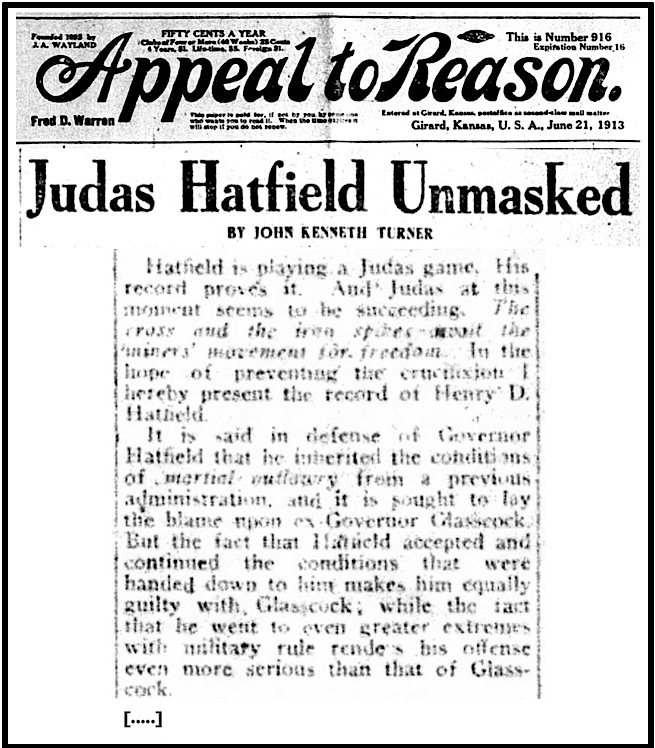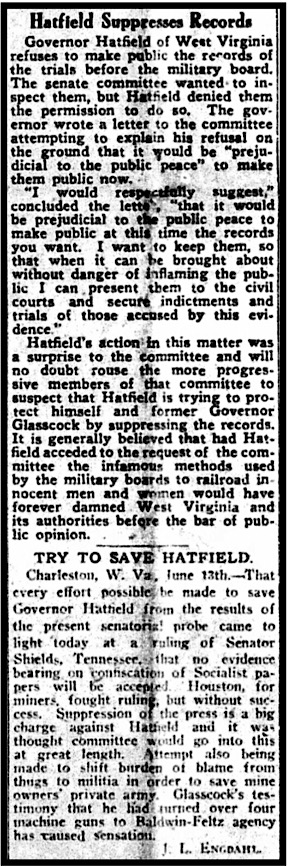Strike “Settlements” in West Virginia
By W. H. Thompson
[Editor of Huntington Socialist and Labor Star]

IN an article in the July REVIEW I detailed at some length the manner in which the odious Hatfield-Haggerty “settlement” of the Kanawha strike was ”put over” on the workers by the coercion of Hatfield and the trickery of the United Mine Workers’ officials. I have received numerous letters from persons prominent in the Socialist party and in the mine workers organization severely criticizing my statements and intimating in very forceful language that I knew not of what I wrote. In justice to these writers I will say that in every instance they were citizens of other states, and, with few exceptions, have never been in West Virginia.
As proof of the accuracy of my statements made in that article I wish to chronicle the happenings in the affected zone since it was written.
The coal miners of Paint Creek and Cabin Creek have unanimously repudiated the agreement entered into for them by Hatfield-Haggerty & Co., and are again on strike. Furthermore, they have compelled Haggerty and the other compromising officials of the U. M. W. of A. to retreat from their former position as absolute dictators, and to grant to their strike a tardy official recognition.
These leaders were placed in a rather peculiar position in thus being compelled to endorse a strike against the agreement they themselves had forced upon the miners, and to “save their face” they loudly proclaimed that the coal barons had violated the provisions of the holy Hatfield Proposition and thus justified the strike.
This brought forth a hot reply from the coal operators’ association, which proved another assertion of mine, to the effect that there was nothing in the Hatfield proposition demanding any changes in their attitude toward the miners. They said in part:
“There was never any promise or agreement on our part to take back strikers or to surrender our rights of hiring or discharging men as we saw fit. We entered into no agreement with the United Mine Workers. We promised the Governor that we would do certain things toward ending the violence on Paint and Cabin Creeks. We have kept this promise in the strictest good faith and there is no foundation for any statement to the contrary.”
In regard to this Dean Haggerty made a public statement in which he said:
“Owing to my absence from the city on important business I have as yet been unable to prepare a detailed reply to the statement of the operators’ association. But I shall do so shortly and show that the Governor’s proposition has been grossly violated.”
The Dean made this promise of a “detailed statement” on June 22, but as yet he has failed to make the statement or show wherein the operators had grossly violated the Hatfield proposition. No one knows better than Haggerty that there was nothing in the proposition that the operators would have any call to violate.
In the meantime the strike in the Paint and Cabin Creek district grows in intensity, and conditions are rapidly approaching the guerilla warfare stage. The criminal mine guards are again in evidence and are using the same old tactics to stir up violence. Already one battle has taken place. This called forth from Governor Hatfield a long open letter to Sheriff Bonner Hill, he, of “armored train” fame, in which he declared that if the civil authorities could not preserve peace in the strike zone they should resign. He also intimated that he might summarily remove such officials as were lax in their duties. When it is remembered that Hatfield tried to “preserve peace” up there with the entire state army and failed, and that he has not as yet resigned his office, his advice appears a little premature, to say the least.
The New River “Settlement”
It would seem to the casual observer that Haggerty & Co. would have learned a few things from their failure to “put over” the now infamous Kanawha Settlement, but, alas, they belong to that specie of old line craft union leaders who never learn and never change. At the very time the Kanawha miners were repudiating the agreement entered into for them by these gentlemen, Haggerty, Hatfield and the New River operators were concocting another settlement prescription to be used upon the restless and dissatisfied New River miners.
This proposition, which was agreed upon by the gentlemen who drew it up, was meant for no other purpose than to chloroform the growing spirit of unrest among the miners in this field and to keep them producing coal to fill the contracts of the Kanawha operators whose mines are closed by the strike there.
The New River agreement is a replica of the infamous Hatfield proposition to settle the Kanawha strike. The workers realize absolutely nothing from its acceptance. And to effectually prevent the miners from ever gaining any concessions under it the following clause is appended:
“Sixth-All matters of dispute, with reference to the above proposition, as between the individual operator and miners in each mine in the New River and Virginia districts, to be referred to a commission of four, two of whom are to be selected by the operators and two by the miners neither of whom are to be interested in mines or mining, either directly or indirectly, and that where a controversy arises, both operator and miner may appear before the said board, and the board, after hearing the evidence from both sides, shall render a decision, and any decision signed by any three of said board shall be final and binding on both operators and miners. Should said board be unable to reach a majority decision, then they shall take the matter to the governor of the state, who shall act as umpire and whose decision shall be final and binding on both operators and miners, and there shall be no appeal therefrom.”
See any chance for the real interested parties, the coal miners, having any say in matters of dispute?
Bear in mind, please, that this agreement, contract, settlement or whatever it is, was never submitted to the miners for their acceptance or rejection. It was accepted for them by the wise Christian leaders whom God and the United Mine Workers of America sent here to act for them. And their interests are further protected Umpire Hatfield from whose decision no appeal can be taken.
Continue reading “Hellraisers Journal: From the International Socialist Review: W. H. Thompson on the Strike “Settlements” in West Virginia” →
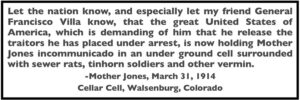 —————
—————
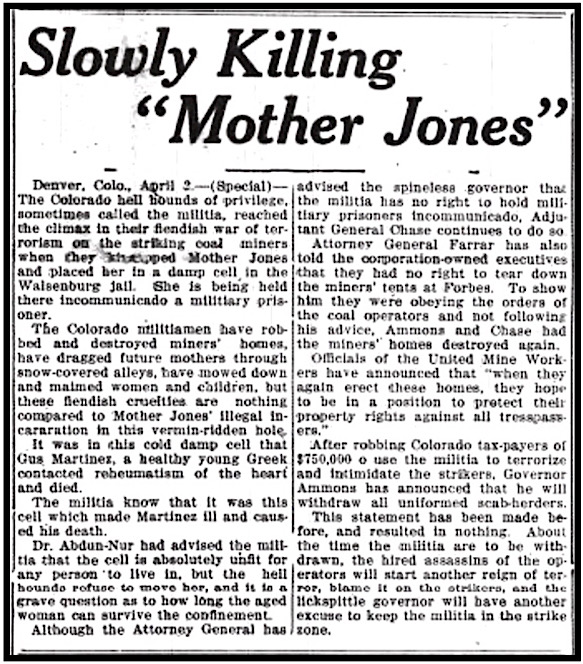
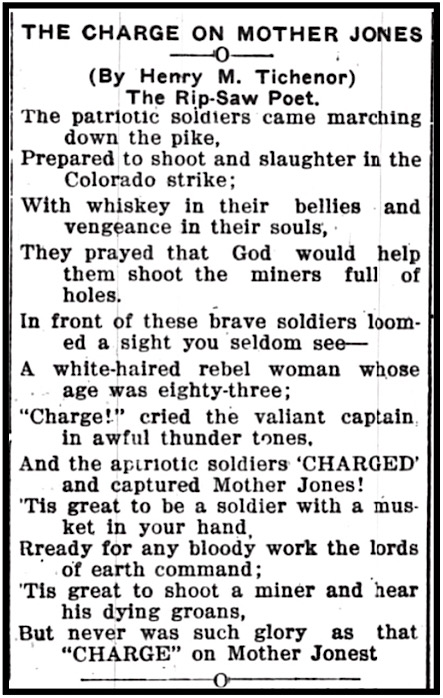
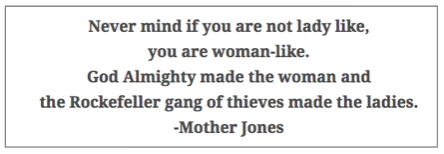 —————
—————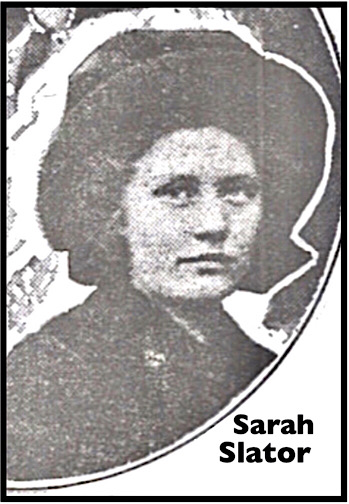
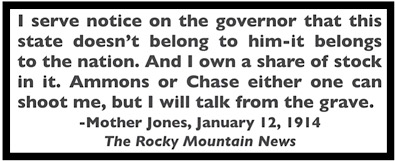 —————
—————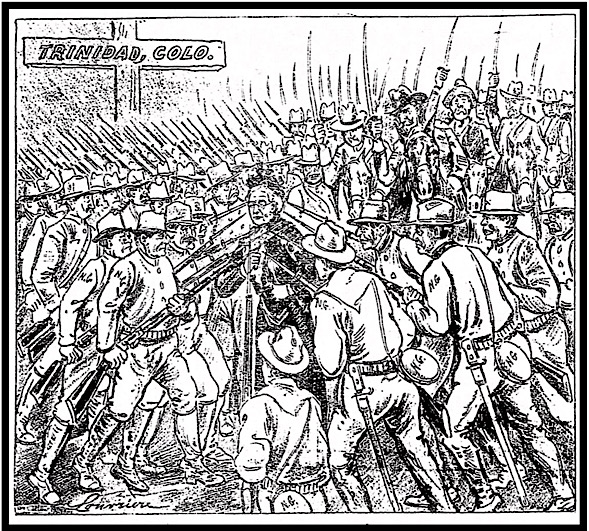
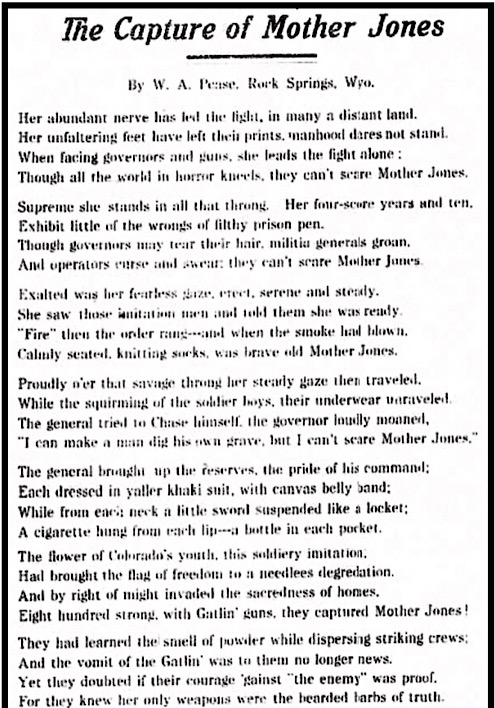
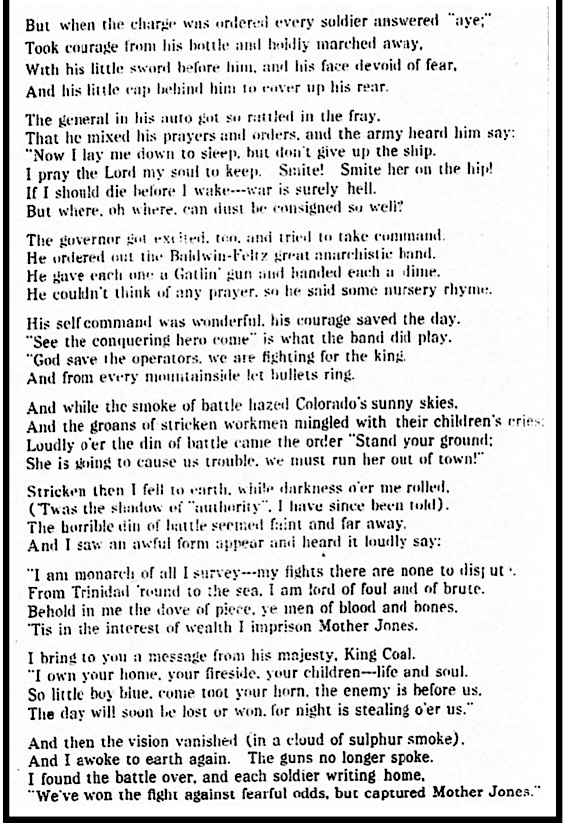
 —————
—————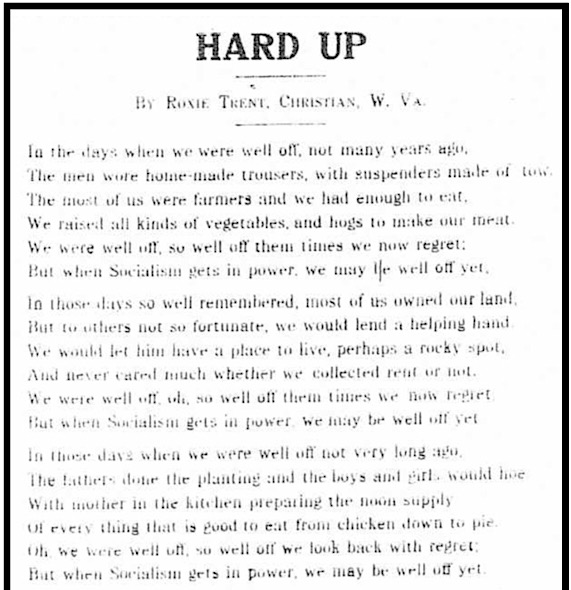
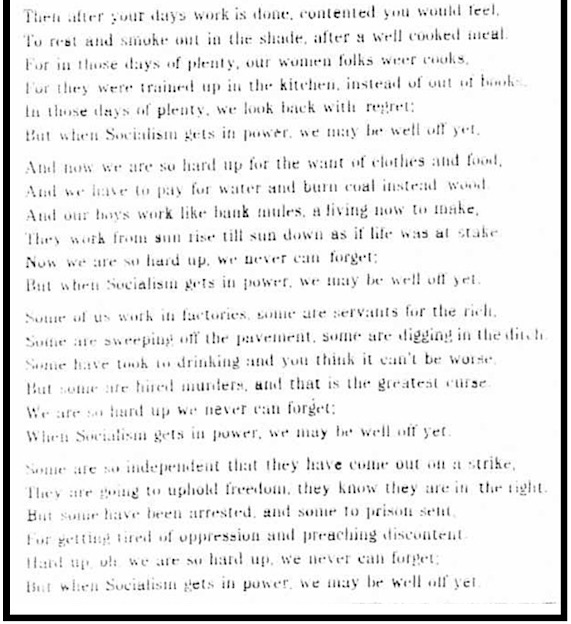
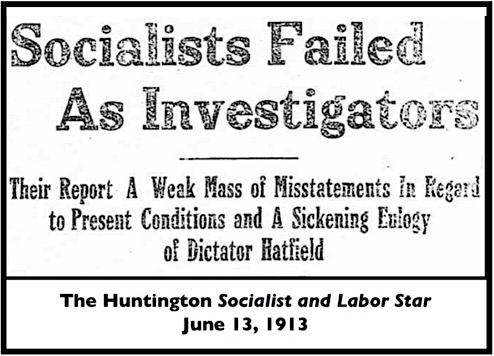 —————
—————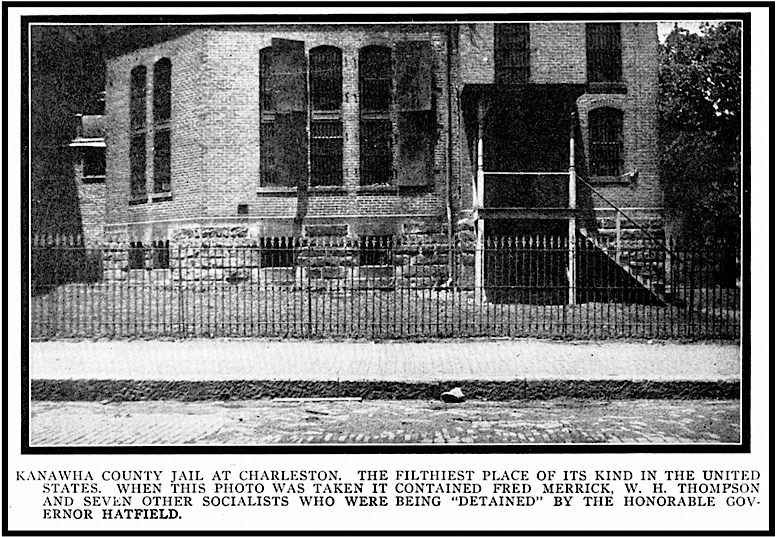

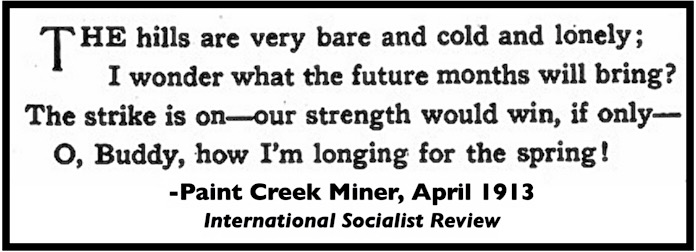 —————
—————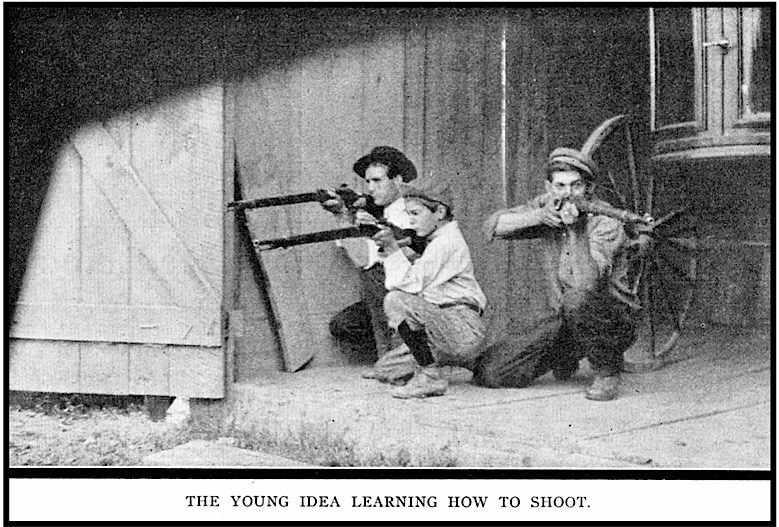
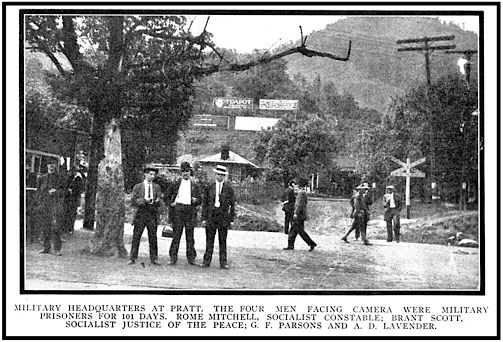
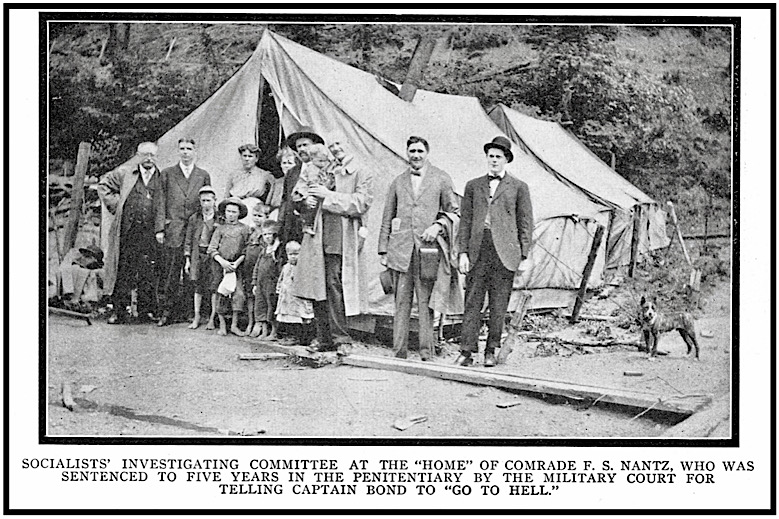
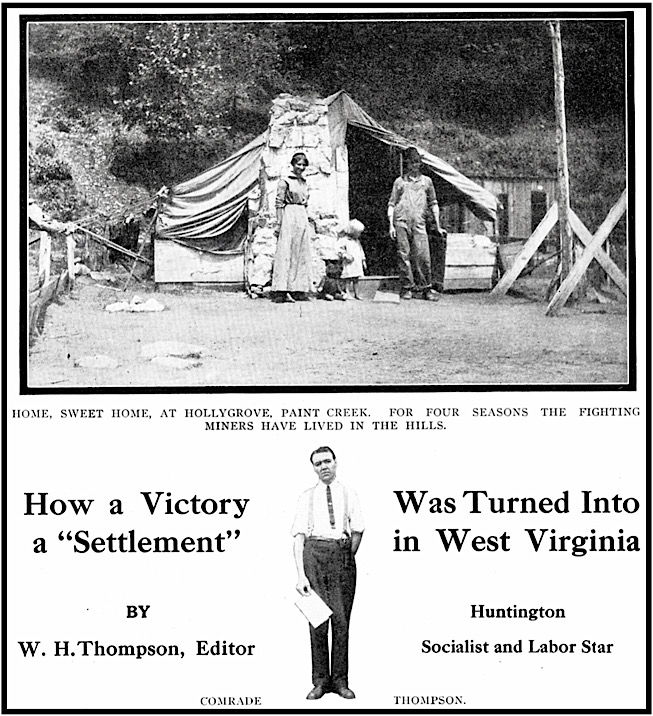
 —————
—————